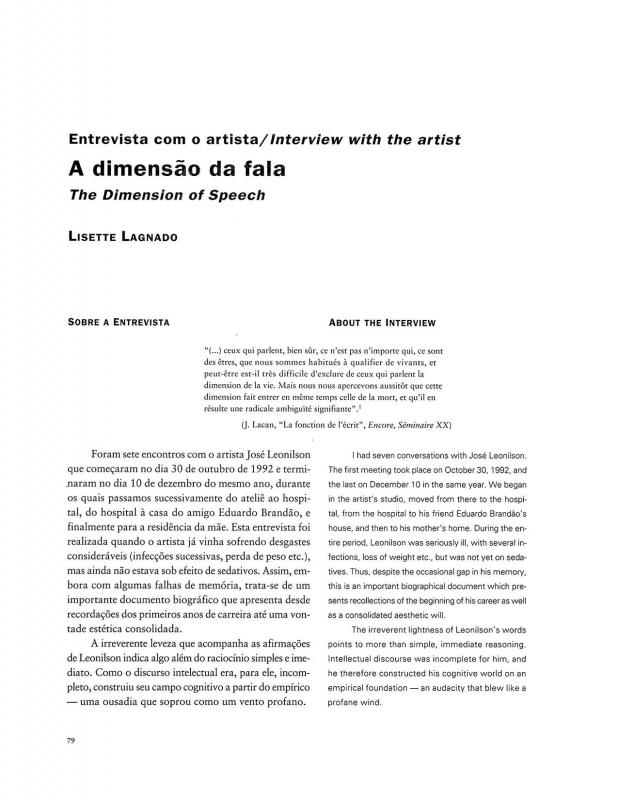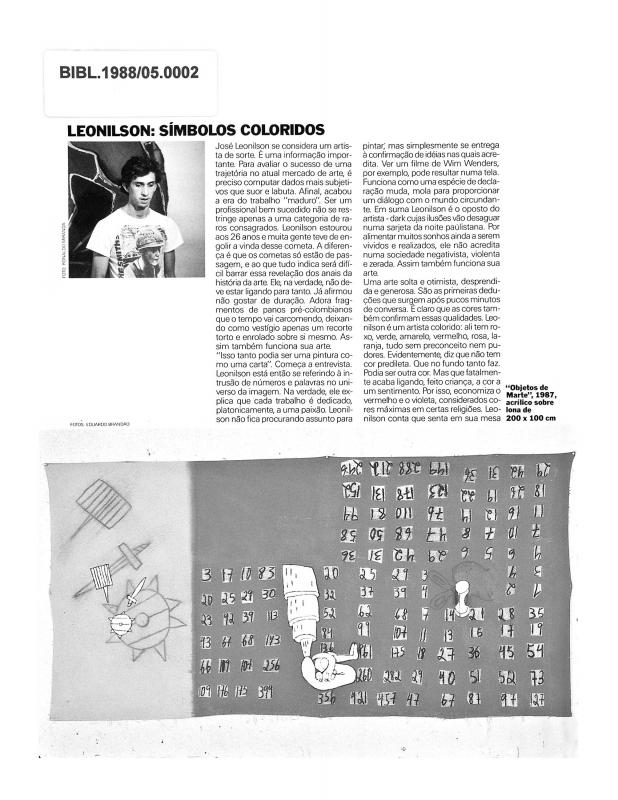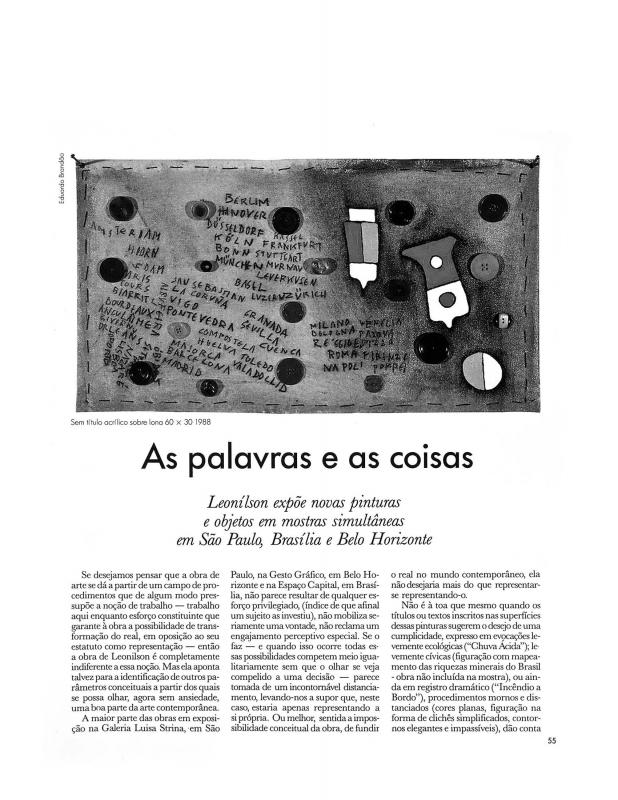Frederico [de] Morais (b. 1936) is one of the outstanding personalities among art critics in Brazil. When he began his work as a critic, he was initially tied to the film world in Belo Horizonte with arts related materials in several newspapers in that city. Subsequently, he took a stance in defense of unconventional expressions of art and the experimental stamp of the avant-gardes. Around 1967, he moved to Rio de Janeiro, where he spent years working as an art critic for the daily newspapers Diário de Notícias and O Globo. He was one of the most active “committed” critics in the 1960s and 1970s, supporting various avant-garde movements and exhibitions during that period as well as serving as a curator for some of these shows. The emergence of the Geração 80 led him to rethink certain political issues and theories.
From his beginnings in the state of Ceará, in northeastern Brazil, José Leonilson [Bezerra Dias] (1957−93) later migrated internally to live in the city of São Paulo, where he was trained and subsequently began to work as an artist. He is one of the leading representatives of what was known as the “Geração 80,” which at that time of uncertainty, introduced a trend called the “return to painting.” This was similar to the agitation of the French avant-gardes that could only partially be appeased with the “retour à l’ordre” [return to order]. It was indeed a hedonistic practice that ostensibly rejected the rationalism of the Conceptual art that had predominated in the prior decade. It essentially entails an intimate kind of artwork in which the issue of identity comes up against the imminent presence of death. This was an inescapable image that was unleashed in Leonilson once he found out that he was infected with the AIDS virus.
For additional information regarding Leonilson, who was one of the symbols of that generation, see Lisette Lagnado in “Entrevista com o artista: a dimensão da fala” [doc. no. 1110767] and in “Leonilson: símbolos coloridos” [doc. no. 1110768]. Also see Sônia Salzstein’s essay “As palavras e as coisas” [doc. no. 1110769].



